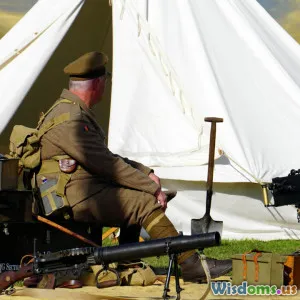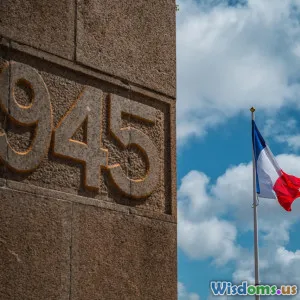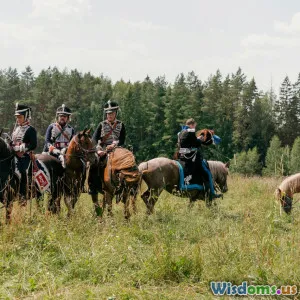
How Secret Societies Shape Governance
6 min read Explore the hidden influence of secret societies on political structures and governance throughout history. (0 Reviews)
How Secret Societies Shape Governance
Secret societies have long been a source of intrigue and speculation, often depicted in popular culture as shadowy organizations pulling the strings of power from behind the scenes. But the reality is far more complex. These groups have played significant roles in shaping governance and political structures throughout history. This article explores how secret societies operate, their historical context, and their impact on modern governance.
The Historical Context of Secret Societies
Secret societies have existed for centuries, with roots tracing back to ancient civilizations. From the Pythagoreans in ancient Greece to the Freemasons and Illuminati in more recent history, these organizations often formed around shared beliefs, values, or goals. The allure of secrecy has been a pivotal aspect of their identity, allowing members to cultivate a sense of exclusivity and loyalty.
The Role of Secrecy
The secrecy surrounding these organizations serves multiple purposes:
- Protection: Members often faced persecution or societal ostracism for their beliefs or practices. Secrecy provided a safe space for discussion and collaboration.
- Control: By limiting membership, these groups could maintain control over their ideologies and practices, ensuring that their goals remained intact.
- Influence: Secrecy often lends an air of mystique, allowing these organizations to wield influence in ways that overt political groups cannot.
The Influence of Secret Societies on Governance
Political Networks and Alliances
One of the most significant ways secret societies shape governance is through the establishment of political networks and alliances. Many influential politicians and leaders have been members of secret societies, which often act as informal channels for political discourse and decision-making. For example, the Freemasons have been linked to the political careers of numerous U.S. presidents, including George Washington and Franklin D. Roosevelt.
These networks can facilitate:
- Collaboration: Members can work together to promote shared interests and agendas.
- Resource Sharing: Access to financial, informational, and social resources to support political campaigns or initiatives.
- Strategic Influence: The ability to sway public opinion or policy decisions through coordinated efforts.
Historical Case Studies
The Illuminati and Enlightenment Ideals
Founded in 1776, the Bavarian Illuminati aimed to promote Enlightenment ideals of reason and secularism. Although it was disbanded within a decade, its influence lingered, as many of its members were prominent figures in politics and philosophy. This organization’s push for rational governance and civil liberties left a legacy that would echo through the ages, influencing democratic movements worldwide.
The Skull and Bones Society
At Yale University, the Skull and Bones society has garnered attention for its elite membership, including several U.S. presidents and influential business leaders. The society's secretive nature has led to speculation about its role in shaping American foreign policy and corporate governance. The connections formed within such societies can lead to significant political and economic power, often operating outside public scrutiny.
The Modern Implications of Secret Societies
Challenges to Transparency
In an age where transparency is increasingly demanded from public figures, the existence of secret societies poses a challenge to democratic ideals. The lack of accountability can lead to suspicions of corruption and conspiracy, eroding public trust in governance. This is particularly evident in instances where political decisions appear to favor certain interests over the common good.
The Call for Openness
While the allure of secret societies continues, there is a growing movement advocating for openness and transparency in governance. Activists and scholars argue that democratic institutions must prioritize accountability to counteract the influence of clandestine organizations. This shift could lead to a more equitable political landscape, where governance is shaped by collective interests rather than hidden agendas.
Conclusion
Secret societies have undeniably shaped governance throughout history, influencing political thought, decision-making, and alliances. While their secretive nature can pose challenges to transparency, understanding their role can provide valuable insights into the power dynamics at play in modern governance. As society continues to evolve, the tension between secrecy and accountability will remain a critical discussion in the quest for a more equitable political system.
In this age of information, acknowledging the historical influence of these organizations can empower citizens to engage more critically in the political process, fostering an environment where governance is truly representative of the people's will.
Rate the Post
User Reviews
Popular Posts





















